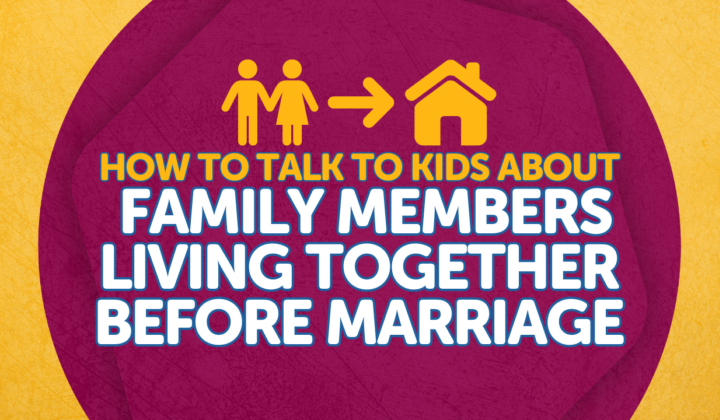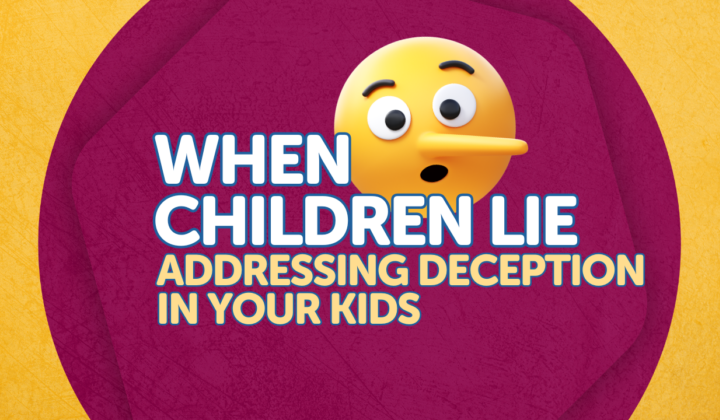Learn more about the journey that led to us equipping kids to carefully evaluate every idea they encounter.
Meet members of our team who have contributed to curriculum development.
Hear from real users of the Foundation Curriculum.
Learn what we believe about God, Jesus, Scripture, and more.
How to Talk to Kids About Sex (Without the Awkwardness)
Hello, friends. Today's podcast question says:
"My children are seven and five and they haven’t shown interest or asked many questions about where babies come from. How would you recommend I organically bring up the topic and tell them about sex without forcing it upon them? Would this talk include the mechanics or just a general idea?"
Really great question. If you’ve been listening to the Foundation Worldview Podcast for a while, you probably know that we typically recommend starting conversations about sex around the age of four. We do this for two key reasons.
Why Start Talking About Sex Early?
The first reason is based on what my friend Hillary Ferrer from Mama Bear Apologetics calls the "Expert Theory." This theory suggests that whoever speaks to us about a topic first naturally becomes the expert on that topic in our minds. We want ourselves to be that expert for our kids—not their friends, the media, or the world.
The second reason is that we want to frame the topic of sex positively from the start. If we wait to talk to our children until after they’ve heard misinformation from other sources or encountered confusing situations—such as seeing a same-sex couple or someone presenting as the opposite gender—their first impression of sex may be negative. Since the biblical worldview presents sex as something good within God’s design, it’s important to set a positive foundation early on.
Should You Bring Up Sex Even If They Haven’t Asked?
Yes! Even if your children aren’t asking questions, it’s crucial to start the conversation, ideally around ages four or five. I know that can feel awkward, especially if your experience growing up involved one uncomfortable "sex talk" around age 9 or 14. The good news is, if you start when your child is under the age of nine, there’s usually only one person feeling awkward—and that’s you.
You don’t need to make it a big, formal event. Instead, plan to casually bring it up during a normal part of the day—perhaps when you’re tucking them in bed or making sandwiches together. You want your child to feel comfortable approaching you with questions about sex. Making it part of a regular, natural conversation will help establish that comfort.
Three Conversations to Have About Sex
I recommend having three separate conversations:
- Body Parts
- The Mechanics of Sex
- Reproduction
If you're looking for help with these conversations, Foundation Worldview has a new resource called "The Talk"...Made Easy: God's Good Design for Sex. This series includes three short videos (under 10 minutes each) that cover these topics in developmentally appropriate and theologically sound language.
You can either watch these videos with your child—letting us handle the "uncomfortable" parts first—or you can watch them yourself to get ideas on how to frame the conversations in your own words.
Conversation 1: Body Parts
Explain that God designed humans in His image as male and female. You can say:
- "Male is a fancy word that means boy, and female is a fancy word that means girl."
Next, introduce the basic terms for male and female genitalia: penis and vagina. If you have both boys and girls in your household, they’ve likely noticed these differences already. If your children are the same sex or you have just one child, you might explain:
- "For boys, the penis is the part of the body they use to urinate."
- "For girls, the vagina is one of the body parts they wipe after urinating."
Keep it simple and then ask if they have any questions. If they ask something off-the-wall or embarrassing, remember—you control your tone and facial expressions. Smile and say:
- "That’s a great question. Let me think about how to explain it, and we’ll talk about it later today or tomorrow."
Conversation 2: The Mechanics of Sex
This can be explained in very simple terms. For example:
- "The husband places his penis inside his wife’s vagina."
You can add:
- "God designed for this to feel good. If this sounds strange to you right now, that’s okay. Sex is for marriage, and it will be a long time before you need to think about it."
Again, ask if they have any questions and give yourself permission to buy time if needed.
Conversation 3: Reproduction
Introduce terms like sperm and egg, and explain how a baby begins to grow. You can say:
- "When a man’s sperm meets a woman’s egg, a baby starts to grow inside the woman."
- "This happens when a husband and wife have sex."
Then, ask if they have any questions.
It Doesn't Have to Be Awkward
By having these three simple conversations, you set a foundation without making it a stressful "big talk." As mentioned, younger children usually aren’t embarrassed. That’s our problem, not theirs.
For kids ages eight and under, I highly recommend checking out the "The Talk"...Made Easy: God’s Good Design for Sex series. You can either watch the videos with your child or use the content to guide your own conversations.
Why These Conversations Matter
I know these conversations can feel uncomfortable, but starting early will help your child develop a healthy, biblical view of sex. By doing this, you’re establishing trust and ensuring that your child sees you as the expert they can turn to. Thank you for being intentional about discipling your children in this area.
Related Posts and insights

How to Teach Sexual Purity Without Inducing Shame
How can we teach children about sexual purity in a way that avoids shame and guilt? In this episode, Elizabeth Urbanowicz explores how to reframe the conversation from "sexual purity" to "sexual faithfulness," emphasizing God’s grace, truth, and redemption. Learn how to root this teaching in the gospel, guide your kids through confession and repentance, and help them understand the seriousness of sin without losing sight of God’s grace.

How to Talk to Kids About Family Members Living Together Before Marriage
How do you explain to your children why living together before marriage is not okay, especially when a family member is doing so? In this episode, Elizabeth Urbanowicz provides a clear, biblical framework to guide this conversation with your kids. Learn how to: 1. Build a positive biblical theology of sexuality. 2. Introduce the concept of sin. 3. Prepare children to love others while holding to biblical truth. Practical, compassionate, and gospel-centered advice to equip your children for real-world situations.

When Children Lie: How to Address Deception in Your Kids
In this episode, we discuss practical ways to address lying in children. Explore how to biblically confront sin struggles, guide them toward repentance, and establish both consequences and trust-building strategies, all while staying consistent in parenting.



